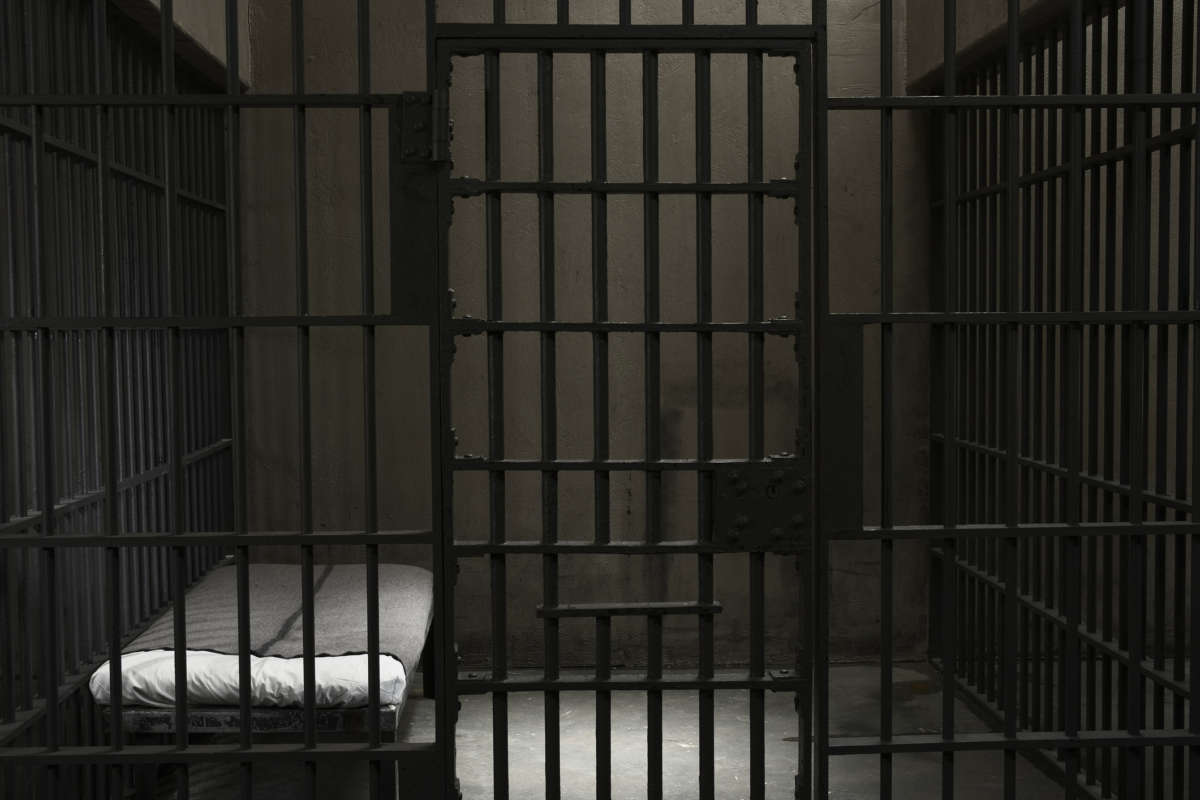Part of the Series
The Road to Abolition
Truthout is a vital news source and a living history of political struggle. If you think our work is valuable, support us with a donation of any size.
In October, California Gov. Gavin Newsom greenlit new criminal legal legislation that has drawn considerable attention. Among its provisions, Assembly Bill 32 claims to halt contracts with private prisons, end immigration detention camps, and alleviate some of the burden associated with court, parole and probation fees. While this legislation is a small victory in its own right, the flurry of reports celebrating it deeply mislead us about the nature of incarceration, policing and justice in the United States.
First, the legislation doesn’t completely abolish the use of private prisons. Instead, the law limits their use to extraordinary circumstances, especially in cases of overcrowding. So, for instance, if more poor Black or Brown folks are arrested and prosecuted, the state would have a legitimate claim to bring back private prison contracts. This caveat is especially troubling, given that California prisons were already at 134.8 percent capacity as of November 13, 2019, the most recent date for which numbers are available.
Second, abolishing private prisons will do next to nothing to end mass incarceration. In fact, if every private prison in the United States were abolished tomorrow, zero people would be freed. Why? Because, as Professor Ruth Wilson Gilmore states, private prisons are built with federal dollars and leased to corporations like the GEO Group and CoreCivic, formerly the Corrections Corporation of America, which are tasked with their upkeep. So when these contracts end, as they will in California, the state or the U.S. government take over the prisons. No one is freed, and little changes for the better.
The narrow focus on private prisons tends to rely on a common misconception: that most — if not all — prisoners are slave laborers for corporations. There is a kernel of truth to this statement: It is undeniable that prisons have replaced slavery as one kind of social control for people of color, particularly in the U.S. South. However, incarceration is not the same system as slavery, and equating the two has led many well-meaning commentators to misconstrue the realities of incarceration. For example, only about 3 percent of prisoners work for corporations, according to data from the Prison Industry Enhancement Certification Program. And, contrary to popular belief, most prisoners don’t work at all. The majority of those who do, work for the institution that incarcerates them. They perform the menial but critical tasks that keep a prison running smoothly: cooking, cleaning, running the commissary, etc. And they do it all at a fraction of the cost of a non-incarcerated laborer: between 14 and 62 cents per hour on average. This is not to say that these conditions are acceptable, but only to point out that ending private prisons won’t end unfair labor practices in prisons.
Furthermore, private prisons are not as profitable as some make them out to be: They typically teeter on the brink of bankruptcy. As a result, private prison corporations don’t make their money from exploiting prisoners’ labor. They skim a small profit by cutting corners in construction, maintenance and labor costs. Private prison corporations construct shoddy buildings, feed incarcerated people meals cooked with food previously thrown in the garbage and pay guards poorly. Prisons also tend to finance themselves by forcing the incarcerated to shoulder the costs of their incarceration: charging exorbitant prices for phone calls, commissary goods and doctor’s visits. Some even require those on probation and parole to pay by the day for their electronic monitoring equipment.
This is not to deny the reality that prisons are unpleasant, violent places, nor that a small number of corporations do profit off incarcerated labor. Instead, I want to highlight how private prisons are not the main issue at hand. Private prisons have drawn much public ire, and rightly so. But they are a symptom, not the cause of mass incarceration.
Scholar-activists like Angela Y. Davis, Ruth Wilson Gilmore and Mariame Kaba imagine “the prison-industrial complex” as a relationship among racism, policing, social control, inequality, economics, immigration policy and militarism, among others. Abolishing prisons, then, requires more than laying blame at the feet of a few corporations profiting from the misery of incarcerated people and their families. It requires unspooling the many tentacles of injustice that reach into all of our lives. It’s about imagining and implementing radical social change to undo centuries of damage wrought by a so-called justice system that does little to keep us safe, as scholar-activist Gilmore states. Until then, carceral violence will remain at large.
In short, the problem is not private prisons, the problem is prisons. Every prison. Period.
A terrifying moment. We appeal for your support.
In the last weeks, we have witnessed an authoritarian assault on communities in Minnesota and across the nation.
The need for truthful, grassroots reporting is urgent at this cataclysmic historical moment. Yet, Trump-aligned billionaires and other allies have taken over many legacy media outlets — the culmination of a decades-long campaign to place control of the narrative into the hands of the political right.
We refuse to let Trump’s blatant propaganda machine go unchecked. Untethered to corporate ownership or advertisers, Truthout remains fearless in our reporting and our determination to use journalism as a tool for justice.
But we need your help just to fund our basic expenses. Over 80 percent of Truthout’s funding comes from small individual donations from our community of readers, and over a third of our total budget is supported by recurring monthly donors.
Truthout’s fundraiser ended last night, and we fell just short of our goal. But your support still matters immensely. Whether you can make a small monthly donation or a larger one-time gift, Truthout only works with your help.
